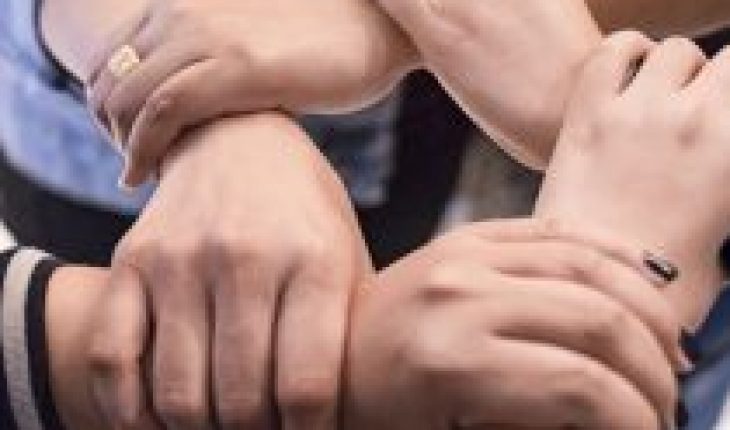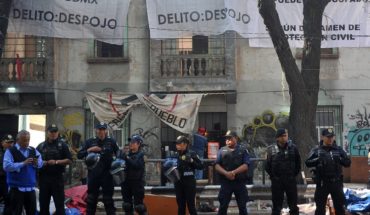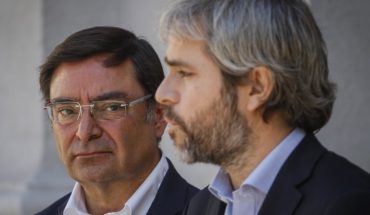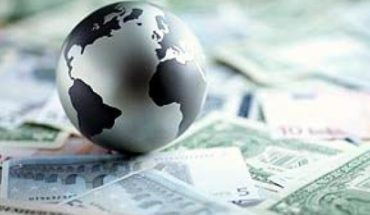
Entrepreneurship in Latin America has never been easy.
75% of the Startups they close their doors after two years, according to the Instituto del Fracaso, an independent body based in Mexico that is dedicated to analyzing the entrepreneurial ecosystem of a country and studying the reason why this type of initiative fails.
And that was before the pandemic, which hit the region’s economy like no other, causing a contraction of between 7% and 8% in 2020, according to various international organizations.
The Economic Commission for Latin America and the Caribbean (ECLAC) estimated in 2020 that the coronavirus and its economic consequences would wipe out 2.7 million Latin American enterprises, 19% of the total.
In addition, 22 million Latin Americans fell below the poverty line, bringing the total poor to 209 million, a third (33.7%) of the entire regional population.
In the face of this bleak picture, it seems difficult to be optimistic. However, there are those who say that there are reasons to be so.
One is the founder of Mercado Libre, the Argentine Marcos Galperín, one of the most successful Latin American entrepreneurs.
“There has never been a better time in Latin America to undertake than now,” he said last November, in the framework of the XCala Summit virtual forum.
According to Galperín “all the conditions are in place: there are great entrepreneurs, there are success stories, there are angel investors, there are private, public and NGO institutions that are dedicated to supporting entrepreneurs”.
Among these “success stories” are some that stand out not only for having managed to grow despite the pandemic. They have done so, moreover, generating a benefit to society, which goes beyond the economic.
In BBC Mundo we tell you about five Latin American ventures that managed to succeed doing good.
Mamotest
Mamotest has performed more than 210,000 mammograms. MAMOTEST
This Argentine venture, the first of its kind in Latin America, arose thanks to a conversation between a father and a son.
The first was veteran radiologist Guillermo Pepe, a specialist in breast diagnosis. The second, its namesake, an expert in business economics.
According to Pepe (son), it was that talk in which his father told him of his desperation for patients dying of breast cancer for not having detected the tumor in time, which inspired him to look for a solution.
The young entrepreneur, who until the age of 34 had been dedicated to opening restaurants in Spain, learned that breast cancer has a survival rate of 90% if detected at an early stage.
He was convinced that through technology the problem that led to some 7,000 women dying each year in his country could be solved because they had not had a mammogram.
In 2013 he took a course on “exponential medicine” at Singularity University, an academic institution in Silicon Valley, in the United States, which specializes in applying revolutionary technologies to find disruptive solutions to problems.
It was then that she concluded that the solution for more women to have access to early diagnosis was to bring technology closer to them, through telemedicine.
Guillermo Pepe plans to expand Mamotest’s operations to Uruguay, Paraguay, Mexico and Spain. MAMOTEST
Pepe created the first telemamography network in Latin America, installing mammographs in remote places, where this test was not performed due to lack not only of the devices, but also of the doctors who perform the diagnosis.
To solve this second limitation, Mamotest created a network of more than 300 experts who receive the images of the mammographers through the Internet and in just 24 hours send the patients the result.
Since its inception, it has already carried out more than 350,000 diagnoses, thanks to funding from governments and health-related companies.
Company spokesmen told BBC Mundo that Mamotest currently has a $1.6 million bill, and in the second half of 2021 plans to expand its operations to Uruguay, Paraguay, Mexico and Spain.
This venture has not only saved lives, it also obtained the so-called “B certification”, which companies that have “triple impact” receive: in the economy (it saves millions to the State), in society (they also carry out campaigns and promote laws to improve women’s health) and the environmental (replacing conventional X-rays, highly polluting, with digital images).
For all this, Mamotest has received the support of, among others, the United Nations (UN), the Inter-American Development Bank (IDB) and the Harvard University Business School.
Kingo
UsersKingo’s s have light thanks to a solar energy equipment, but they only pay for their consumption. KINGO
10 years ago, Guatemalan Juan Fermín Rodríguez, then 28, decided to give up his job at a multinational to try to make a dream come true: to create an enterprise that would help the environment and positively impact the lives of others.
Researching, he found a fact that alarmed him: that about a fifth of the world’s population does not have electricity and that it is precisely these communities without access that have the greatest difficulties for their social, economic and educational development.
So in 2013 he launched a startup which proposes an absolutely new idea: to offer energy through solar panels with a prepaid modality, similar to that used by many cell phone companies.
In this way, people who do not have access to the electricity grids can use solar energy, without having to buy the expensive equipment or have to pay for its installation and maintenance. They only pay for their consumption.
The pilot project included only 50 families, but it worked so well that by 2019 the service already reached 55,000 households in Guatemala and had even spread to Colombia.
Kingo’s goal is to install 140,000 equipment by 2022, which would benefit about half a million people.
Then, the plan is to expand into Latin America (this year contracts are signed in Mexico and Panama), where, according to Rodriguez, there are more than 7 million families without electricity.
Juan Fermin Rodriguez plans to bring prepaid solar power to the entire region. KINGO
The Guatemalan company has not only obtained an investment of more than US$25 million from entities such as the IDB, the Dutch Development Bank and the French energy giant Engie, in addition to the recognition of the UN and the Massachusetts Institute of Technology (MIT), among others.
It also attracted the attention of Hollywood. More specifically, from one of the stars most committed to the environment: Leonardo DiCaprio.
The “Titanic” and “Wolf of Wall Street” actor was so fascinated with this project that, in addition to becoming an investor in 2018, he joined as an official advisor, and his renowned face is highlighted in the list of “who we are” on the company’s website.
“Solar energy is key to a fossil fuel-free future, and Kingo’s technology will help enable the widespread use of clean energy in the developing world. I am proud to invest in Kingo, as it seeks to eradicate energy poverty,” reads a quote from the actor, below his photo.
Sinba
This Peruvian enterprise aspires to create a world without garbage. SINBA
Although it sounds similar to the name of the protagonist of the “Lion King”, this Peruvian venture has nothing to do with these mammals.
Sinba actually comes from “No Garbage,” and the goal of this company is to find a solution to the problem of the millions of tons of food we throw away every year.
According to the UN Food and Agriculture Agency (FAO), about a third of the food produced in the world is wasted.
Meanwhile, a third of all crops produced are used for animal feed.
Sinba found a simple solution to this paradox by recycling the leftovers for use as pig feed.
The idea was born almost by chance one day in 2015, when Andrea Rivera, Bitia Chávez and Philip “Pipo” Reiser got together in Lima to eat.
Bitia Chávez, Pipo Reiser and Andrea Rivera founded Sinba in 2016. SINBA
The three had met a few months earlier in a program dedicated to developing sustainability projects.
But it was in that restaurant, while watching the waiters pick up dishes with unfinished food, that the friends decided to put the focus on what is done with those remains.
After investigating the issue, they found out that a Peruvian restaurant generates between 30 and 400 kilos of food waste per day.
In 2016 they launched Sinba, a restaurant organic waste treatment service.
The company advises restaurants on how to manage their organic waste. In partnership with urban recuperators, it collects them and transports them to a biofactory, where they are transformed into animal feed or fertilizer through a sterilization process.
He then markets the food to pig farmers, whom he also advises on the management of their waste.
This is how Sinba transforms human waste into food for animals. SINBA
To date, they have recycled more than 2,100 tons of organic waste.
Sinba also opened a household waste collection network, transforming organics into compost, oil into biocombumore than 230 tonnes of inorganic waste is recycled.
In addition, it educates on how to reuse 90% of the garbage, and has already trained more than 3800 people.
Due to its economic, environmental and social impact, this Peruvian enterprise managed to become a Certified B company.
At the end of 2020, it was also selected by the UN — along with Mamotest and Kingo — as one of the 28 most innovative organizations in the world to achieve the Sustainable Development Goals (SDGs) proposed by that body by 2030.
The site of Sinba states that its purpose is: “To co-create a world #sinbasura, where nothing is left over and where no one is left over.”
Momlancers
This labor consultant specializes in getting jobs for professionals who are mothers. MOMLANCERS
Like many women who decide to become mothers, Mexicans Regina Cabal and Katia Moye faced a dilemma after the birth of their daughters: how to balance their careers with motherhood?
Moye decided to prioritize her baby, and resigned from her position at the marketing office of a consumer brand because “I didn’t want to come home at night just to bathe and sleep her.”
Instead, Cabal, who worked at an innovation agency, managed to negotiate working part-time for a year.
To his own surprise, it turned out to be “the most productive year” of his entire career.
Inspired by their own experiences, the two came together to create Momlancers, a labor consultancy for mothers. freelancers.
This Mexican platform, created in 2017, is dedicated to connecting professionals who are mothers with companies that may require their services, with the aim that they can work remotely and continue caring for their children.
The founders of Momlancers were inspired by their own experiences to create their venture. MOMLANCERS
More than 15,000 professional moms use Momlancers to connect with a hundred companies, not only in Mexico but also in Colombia and Ecuador.
Last February, the magazine Forbes Mexico included entrepreneurship among the “30 promises of 2021.”
Cabal and Moye’s next challenge is to multiply by 10 the companies that use the consultancy and start providing other services, such as training for mothers who register on site.
They also seek to be a reference in Latin America.
“We want to change the way job opportunities are created for moms,” they say.
Talk about it
The Argentine Mateo Salvatto was just 17 years old when he created the Háblalo app, and a year later he launched his company, Asteroid. TALK ABOUT IT
Mateo Salvatto was about to receive as an electronics technician from high school, in 2017, when he created the Háblalo app, which allows people with hearing disabilities to communicate.
“My mother has been a deaf teacher and sign language interpreter for 35 years,” the 22-year-old Argentine told BBC Mundo.
“And I wanted to try to help all these boys and girls, my old woman’s students, who suffer a lot of injustices that I didn’t suffer, just because I had that disability. From doing a procedure or asking for an address on the street to making a complaint or going to a doctor’s office,” he said.
“How can it be that we have technology to put a robot on Mars, but a deaf person can’t make a complaint?” he thought.
His application was so successful that by 2018, at just 18 years old, he formed the company Asteroid, in order to manage his venture.
Today Háblalo, which works for free and without the need to be connected to the internet, is used by 140,000 people in 55 countries across five continents and in more than 35 languages.
Háblalo offers different functionalities so that people with different limitations to communicate can do so. TALK ABOUT IT
Its creator describes it as a “multi-tool with different functionalities”, which allows users —not only deaf, but anyone with a problem that makes it difficult to speak— to communicate, either by writing a text that is transformed into audio, or using drawings, images or photos, among other options.
Despite not generating direct revenue from the use of the app, Asteroid developed an alternative business model: it created a corporate version of the application, called Háblalo for Business, which allows private or state organizations to serve people with communication disabilities.
The company is also dedicated to “creating technology that changes people’s lives,” says Salvatto, who said he is working on new apps that help people with Alzheimer’s and those who don’t have motor skills.





